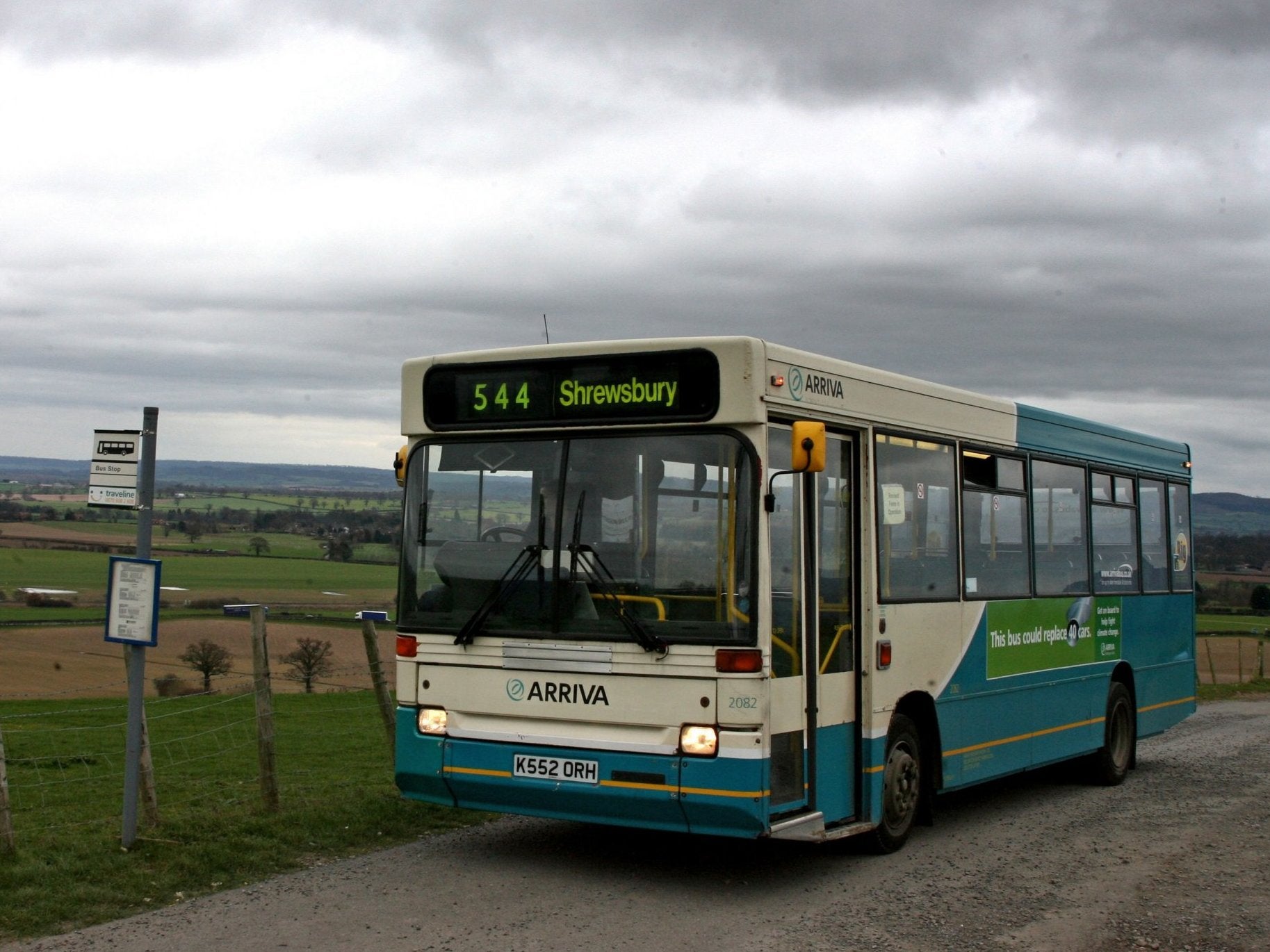Bus travel hits 12-year-low as prices rise and services are axed
Average fares soar 55 per cent over past decade

Your support helps us to tell the story
From reproductive rights to climate change to Big Tech, The Independent is on the ground when the story is developing. Whether it's investigating the financials of Elon Musk's pro-Trump PAC or producing our latest documentary, 'The A Word', which shines a light on the American women fighting for reproductive rights, we know how important it is to parse out the facts from the messaging.
At such a critical moment in US history, we need reporters on the ground. Your donation allows us to keep sending journalists to speak to both sides of the story.
The Independent is trusted by Americans across the entire political spectrum. And unlike many other quality news outlets, we choose not to lock Americans out of our reporting and analysis with paywalls. We believe quality journalism should be available to everyone, paid for by those who can afford it.
Your support makes all the difference.Public transport campaigners have warned of a “crisis” in bus travel as new analysis shows passenger journeys are at a 12-year low.
The Campaign for Better Transport (CBT) said rising fares and cuts to services meant fewer people were able to make use of buses.
The latest figures from the Department for Transport show 1.2 billion local bus journeys were made across Britain between April and June – a 10 per cent decrease since the peak of 1.33 billion between July and September 2008.
The fall in journeys coincides with a 55 per cent hike in average fares over the past decade.
Demand for bus travel has not been this low since the beginning of 2006.
A recent CBT study found that funding for supported buses has almost halved in the last eight years, leaving many areas without public transport.
Local authority bus budgets in England and Wales were slashed by £20.5m last year – the eighth consecutive annual government cut.
“The falling number of passengers taking the bus is a consequence of continued cuts in funding to support services,” said Darren Shirley, CBT chief executive.
“Nationally and locally this is resulting in fewer services and higher fares. The statistics back up what our research has been showing for years: that buses are in crisis.”
Mr Shirley urged the government to use its upcoming budget to reverse the “trend of cutting support” for buses.
“They are vital for the economy and the environment but year-on-year, people – especially in rural areas – are losing their bus service, making it difficult to access jobs, education and other essential public services.”
A recent report commissioned by the Joseph Rowntree Foundation found the cost of bus travel and the unreliability of services in the North of England was cutting off the poorest families from job opportunities.
Councillor Martin Tett, the Local Government Association’s transport spokesman, said the fall in bus journeys was “hugely concerning”.
He said: “It’s nearly impossible for councils to keep subsidising free travel while having to find billions of pounds worth of savings and protect other vital services like caring for the elderly, filling potholes and collecting bins.”
The Local Government Association wants Whitehall to boost funding for free bus pass schemes and give councils more control over the central government bus grant.
“The way the concessionary travel scheme is funded by Whitehall has not kept up with growing demand and cost,” said Mr Tett.
A government spokeswoman said: “While local authorities are best placed to decide how to provide supported bus services, we provide around £250m every year to support bus services and a further £1bn to support older and disabled people using the free bus pass scheme, benefiting people up and down the country.”
Join our commenting forum
Join thought-provoking conversations, follow other Independent readers and see their replies
Comments